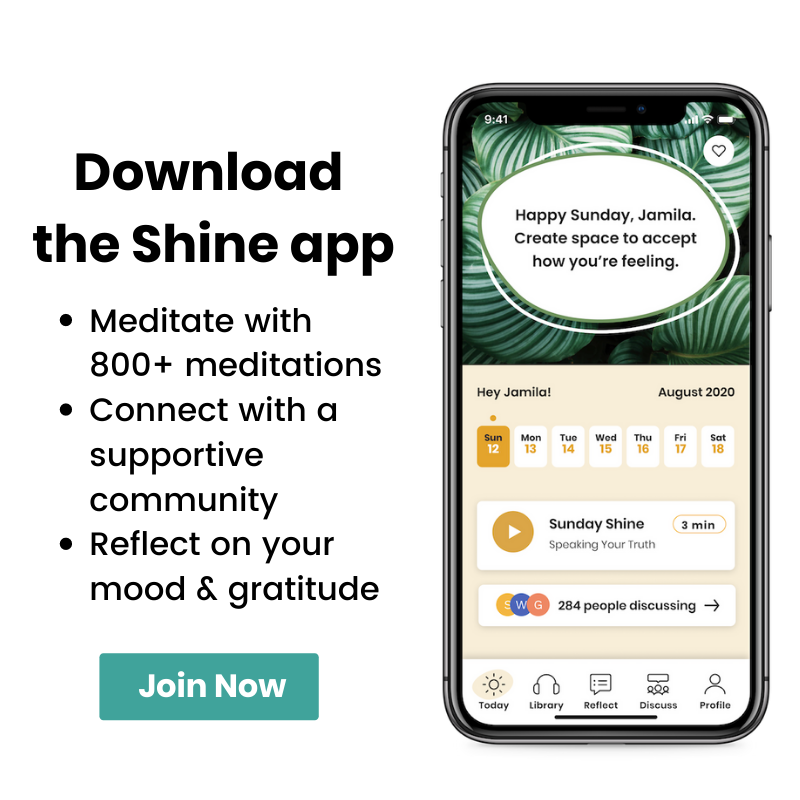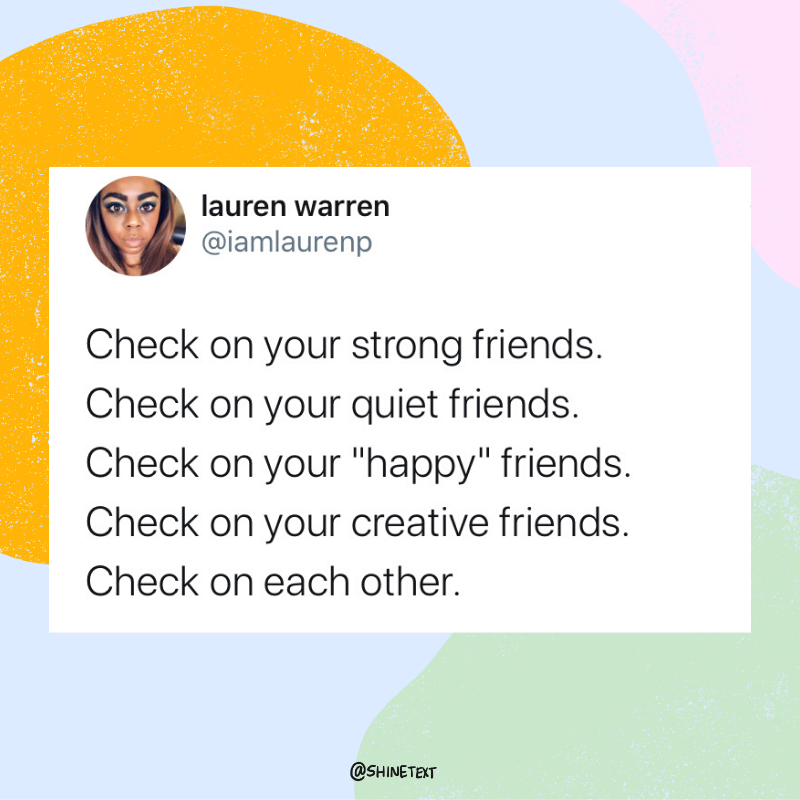How to Check On Your Friends During Tough Times—Without Burning Out
A common theme on self-care social media: Check in on your strong friends.
It’s an important message, but following through can be a little tougher than it sounds.
You might worry about embarrassing your friends by asking how they’re doing, or concerned you’ll exacerbate whatever they’re feeling. You may be unsure of the best way to reach out—is a text too casual? When does something warrant a phone call? Facetime? An email? And if you do make contact, you’ll probably find yourself tongue-tied. Plus, you have yourself to worry about.
It’s enough to make anyone’s head spin—and stop short of reaching out. And it’s true, checking in requires a little thought and planning. But with a solid strategy in place, you can support those around you while keeping your own wellbeing in mind.
Checking in requires a little thought and planning. But with a solid strategy in place, you can support those around you while keeping your own wellbeing in mind.
Here, how to take the first steps.
Start With a Text
If you’re not sure where to begin, copy a message that writer Danielle Sepulveres received:
“Hey friend, I hope you’re taking care of yourself!”
Coupled with a few heart emoji, it shows you’re thinking about your pal, concerned for their wellbeing, and open to a conversation.
“I smiled at (the text) and for the first time that day, I realized that I hadn’t actually taken a minute for myself,” writes Sepulveres. “I’d been wrapped up working all day, then doing laundry, then becoming increasingly depressed and infuriated by some of the top news stories, and I realized I was completely exhausted.”
If nothing else, you’ll remind your friend that they have someone in their corner.
Validate, Validate, Validate
Let’s face it: Knowing how to talk to a friend who’s struggling can be tough. Instead of searching for the perfect advice, or offering a more positive take on your pal’s concerns, focus on validating what they tell you.
“Validation is the recognition and acceptance of another person's thoughts, feelings, sensations, and behaviors as understandable,” writes Karyn Hall, PhD.
Start by focusing entirely on your conversation. If you’re on the phone, close out any other apps.
Then, take what they say and reflect it back. For example: If your friend talks through her anxiety the pandemic, you could say something like, “Sounds like you’re worried about the uncertainty of the future.” It’s a sign that you’re listening and her concerns are understandable.
Remember, you’re not here to correct your friend’s thoughts. Saying something like, “But don't worry!” may sound comforting, but it’s just another way of saying, “Hey, your worries aren’t valid. The way you’re thinking is wrong.”
The point isn’t to make everything better—it’s to show that you understand.
The point isn’t to make everything better—it’s to show that you understand.

Make a Plan
Checking in on a friend isn’t a one-and-done event.
Your friend might be fine today and devastated tomorrow, and the healthy vibes from your check-in can dissipate quickly in turbulent times.
If you’re worried about a pal post-convo, try making a plan to talk again the following week. Or, set a date to watch a movie together via Netflix party. Making a plan is a great way to boost someone’s mental health in the moment, and shows that you’re in it for the long haul.
Protect Your Own Energy
Supporting your BFF? Great. Putting your BFF’s needs ahead of your own? Not so great.
If you’ve been propping up your pals, you’re a strong friend, too, and you deserve the same level of care you’ve been giving others. Make sure you’re not focusing on your friends’ emotions as a way to avoid your own, and remember—taking care of your own needs and emotions just means you’ll be a better source of support for those around you.
Taking care of your own needs and emotions just means you’ll be a better source of support for those around you.
One way to do so is by checking in on yourself the same way you’ve been checking in on those around you.
Grab a journal and ask yourself, how am I feeling? How have I been taking care of myself? Write out your responses the way you’d spill to a friend. Then, react the same way you’d react to a friend. Feeling anxious? Remind yourself that that’s OK! Missing some human contact? Schedule a dinner date.
Check in on yourself, check in on your crew, repeat—it's a cycle of support we all need, especially during these tough and uncertain times.
Read next: How to Give to Others Without Burning Out


Shine is supported by members like you. When you buy through links on our site, we may earn an affiliate commission. See our affiliate disclosure for more info.


